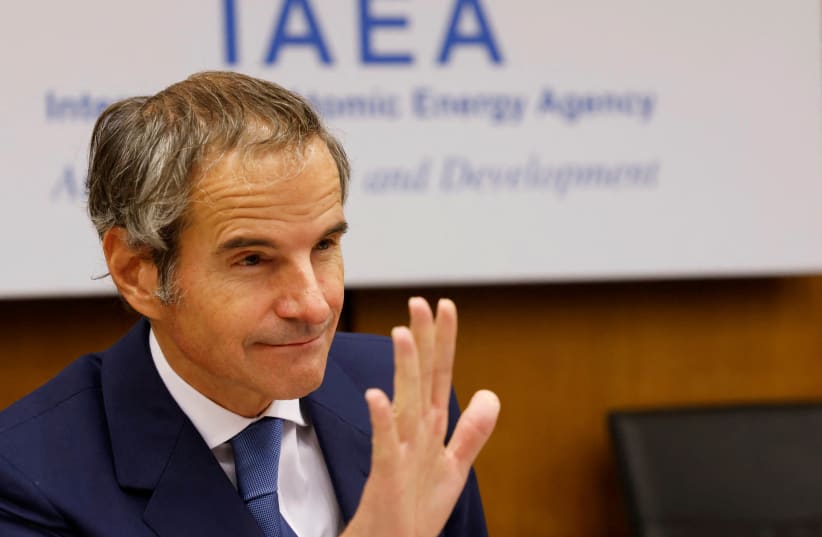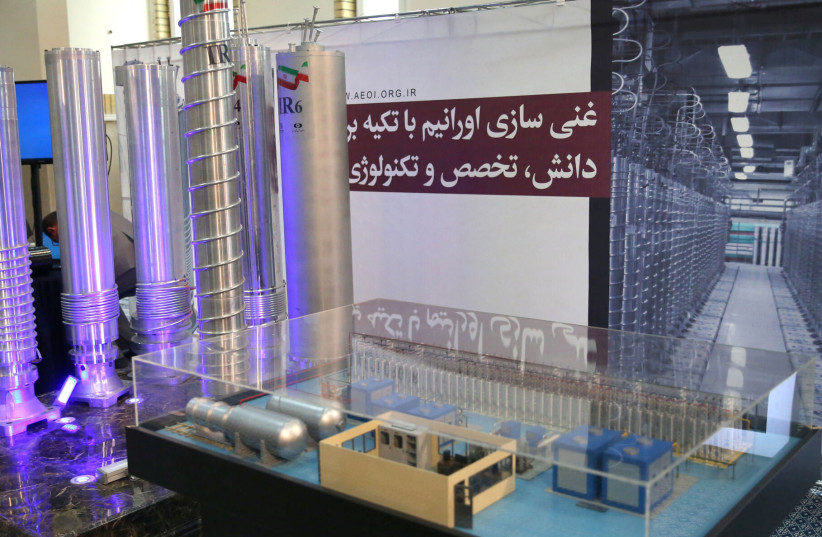The IAEA’s 35-nation Board of Governors passed a resolution on Wednesday condemning Iran for its lack of cooperation with the watchdog and for its barring of some top inspectors.
The resolution, proposed by Britain, France, and Germany and initially resisted by the US, which feared Iran would respond as it has to previous resolutions by escalating its nuclear activities, was passed with 20 countries in favor, two against, and 12 abstentions, Reuters reported.
The Islamic Republic had warned that it would retaliate and it was expected to do so, though the exact nature of its response still was unclear at press time.
Foreign Minister Israel Katz responded to the resolution in a statement on X, saying, “I welcome the decision made today by the @iaeaorg Board of Governors, demanding that Iran comply to its international obligations and cease advancing its dangerous nuclear program.”
I welcome the important decision made today by the @iaeaorg Board of Governors, demanding that Iran comply to its international obligations and cease advancing its dangerous nuclear program.This is the first resolution in 19 months on Iranian violations, paving the way for…
— ישראל כ”ץ Israel Katz (@Israel_katz) June 5, 2024
“The free world must stop Iran now – before it’s too late,” Katz’s statement concluded.
After past condemnations or new sanctions from the US, the West, or the IAEA, Tehran has often reduced its cooperation with the UN’s nuclear inspectors by shutting off surveillance cameras, restricting visits to certain nuclear facilities, or expelling certain inspectors.
However, neither the Europeans-IAEA’s moves nor Iran’s are clear at the moment.
While creating some additional pressure and embarrassing diplomatically, a third IAEA condemnation in four years, without any concrete threat, such as a referral to the UN Security Council for a potential snapback of global sanctions, may have minimal impact.
As things stand, the 2015 nuclear deal snapback itself as a “stick” to use against Iran is due to expire around January 2026, and certain restrictions on how many centrifuges Tehran can run are due to expire in October 2025.
Likewise, if Iran only reduces some of the IAEA’s inspections or surveillance, but keeps some crucial ones in place, and does not leave the Treaty on the Non-Proliferation of Nuclear Weapons (NPT), it is unlikely that there would be any impending crisis with the West.
Currently, Iran’s nuclear violations before the IAEA are its reduction of cooperation with inspections and surveillance, as well as its failure to give coherent and credible answers to questions about illicit nuclear materials found in two nuclear locations: Varamin and Turquzabad.
These illicit materials were brought to the attention of the IAEA by the 2018 Mossad operation that seized Iran’s secret nuclear archives from a seemingly abandoned warehouse in Shirobad, Tehran.
Separately, the Islamic Republic is also in violation of the 2015 nuclear deal, having enriched large quantities of uranium up to both the 20% and 60% levels, far above the permitted 3.67% level, and dangerously close to the 90% weaponized level.
There has been a debate between the Europeans and the US about whether any new pressure will make any difference after Iran president Ebrahim Raisi died in a helicopter crash and elections for his replacement are not set to take place until June 28.
Reuters and Jerusalem Post Staff contributed to this report.

